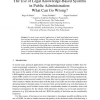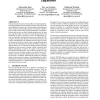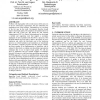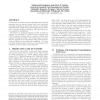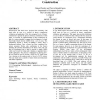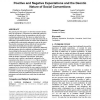ICAIL
2003
ACM
14 years 4 months ago
2003
ACM
In recent years, practical applications of legal knowledge-based systems have become increasingly common. This raises the issue of their functioning in practice and their actual in...
ICAIL
2003
ACM
14 years 4 months ago
2003
ACM
In the last decades the interest in the problem of comparing and harmonizing legislation has been steadily increasing. One reason is the increasing legal convergence between gover...
ICAIL
2003
ACM
14 years 4 months ago
2003
ACM
Problems with legal quality will not only increase effort and costs of the law enforcement organisations, but also undermines the regulating power of the legislator. Unintended us...
ICAIL
2003
ACM
14 years 4 months ago
2003
ACM
In this paper, we introduce IBP, an algorithm that combines g with an abstract domain model and case-based reasoning techniques to predict the outcome of case-based legal argument...
ICAIL
2003
ACM
14 years 4 months ago
2003
ACM
Bench-Capon and Sartor have proposed that reasoning with legal cases be seen as a process of theory construction, evaluation and application. They have proposed a set of theory co...
ICAIL
2003
ACM
14 years 4 months ago
2003
ACM
Name matching—recognizing when two different strings are likely to denote the same entity—is an important task in many legal information systems, such as case-management syste...
ICAIL
2003
ACM
14 years 4 months ago
2003
ACM
The general goal of the paper is to show the normative/deontic nature of conventions. Conventions are traditionally defined as regularity of behavior based on expectations evolved...
